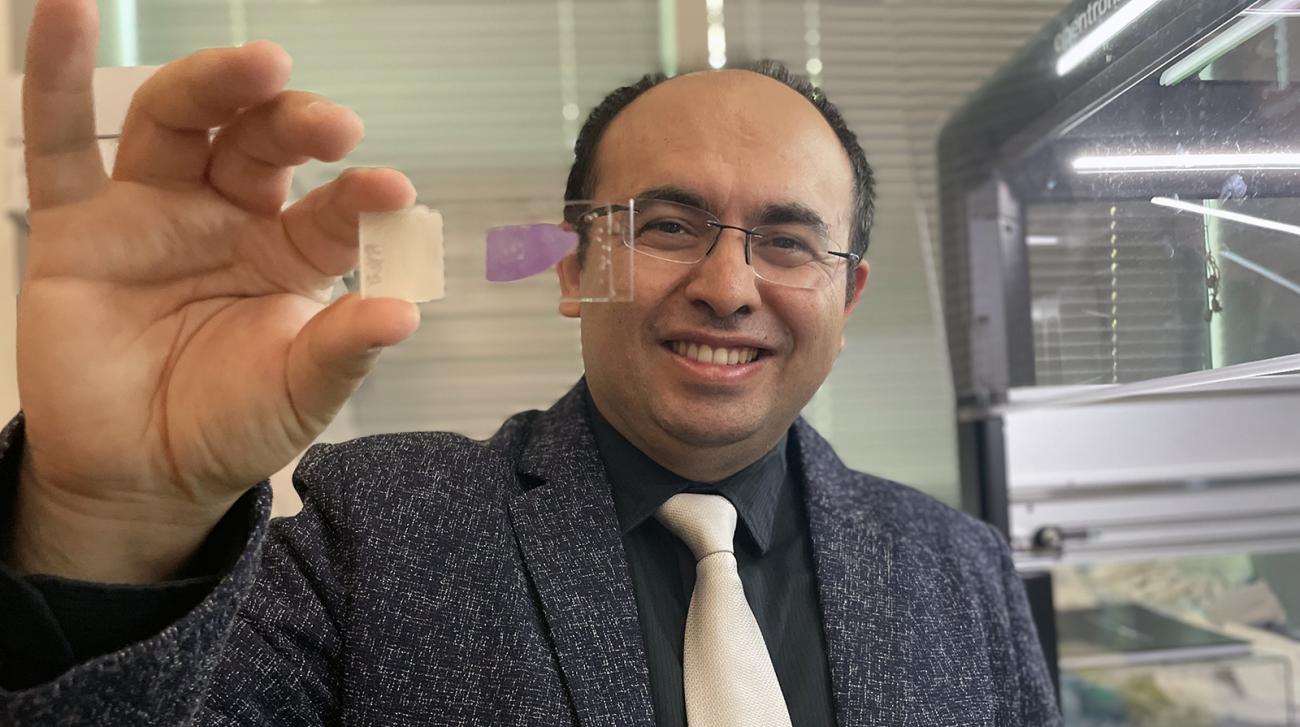Coulter BME Professor Earns Tenure, Eyes Future of Innovation in Health and Medicine
In a significant academic milestone, Assistant Professor Ahmet Coskun was named one of 36 faculty at Georgia Tech who earned tenure this spring, marking a pivotal moment in a career defined by innovation, mentorship, and interdisciplinary research.
“It feels like a sign of a quantum leap in my career; however, it also feels like a fresh start, with new challenges and responsibilities to take on,” Coskun said.
The journey to tenure was anything but conventional. It was shaped by a blend of strategic planning and unexpected opportunities, bolstered by the support of mentors, the courage of student researchers, and the patience of family members who stood by through the demanding pace of academic life.
For Coskun, a Bernie Marcus Early Career Professor, the academic and research environment proved fertile for growth.
The unique “One BME Department” structure—spanning Georgia Tech and Emory campuses—enabled Coskun to collaborate across disciplines, integrating engineering and medicine to address critical gaps in patient care.
Among the professor’s notable achievements are groundbreaking contributions to spatial signaling network research in lung cancer, in partnership with the Winship Cancer Institute, and the development of predictive stem cell therapeutics with Emory University’s Regenerative Medicine Center. These efforts have led to high-impact publications in Nature Biomedical Engineering and Science Partner Journal.
The recent launch of the Spatial Consortium for Omics & Patient-Centered Excellence (SCOPE) further underscores Coskun’s leadership in advancing spatial omics and translational medicine in Georgia.
“Now, I can collaborate with experts across different disciplines and have access to labs, funding, and a network of colleagues who genuinely care about my success,” he said.
Yet, Coskun’s ambitions extend beyond the lab. In the classroom, he champions an “i3” approach—interactive, inclusive, and insightful—where students are encouraged to think critically, collaborate, and apply their knowledge to real-world problems. Open-note assessments and interdisciplinary projects are central to this philosophy.
“I envision helping students think critically, ask questions, and apply what they learn to solve real-world problems,” he said. “My teaching will increasingly leverage more hands-on, interdisciplinary projects, pushing boundaries in areas that can directly improve human health.”
Looking ahead, Coskun plans to deepen his work in personalized medicine, bio-mimicking micro-physiological systems, predictive AI, and biomedical data visualization. With tenure providing both stability and freedom, the path forward is clear: to push the boundaries of biomedical engineering and inspire the next generation of changemakers.
“The horizon line, if you will, is now about using the freedom and support that come with tenure to push my research and teaching to even greater heights,” Coskun said. “There’s a sense of both liberation and rejuvenated excitement about the path ahead.”
Latest BME News
Jo honored for his impact on science and mentorship
The department rises to the top in biomedical engineering programs for undergraduate education.
Commercialization program in Coulter BME announces project teams who will receive support to get their research to market.
Courses in the Wallace H. Coulter Department of Biomedical Engineering are being reformatted to incorporate AI and machine learning so students are prepared for a data-driven biotech sector.
Influenced by her mother's journey in engineering, Sriya Surapaneni hopes to inspire other young women in the field.
Coulter BME Professor Earns Tenure, Eyes Future of Innovation in Health and Medicine
The grant will fund the development of cutting-edge technology that could detect colorectal cancer through a simple breath test
The surgical support device landed Coulter BME its 4th consecutive win for the College of Engineering competition.








